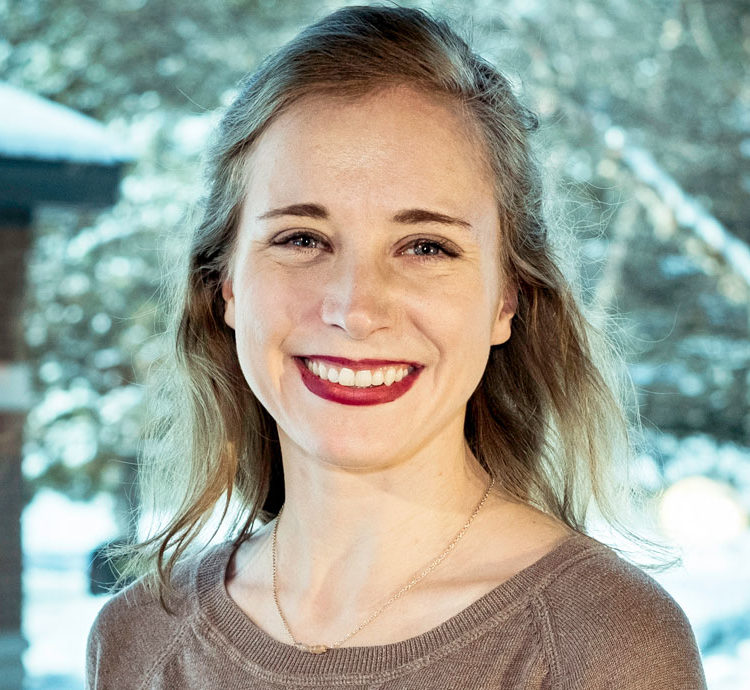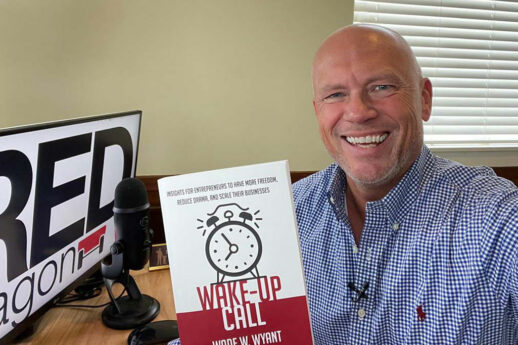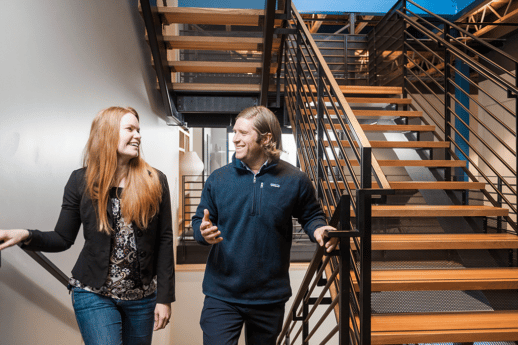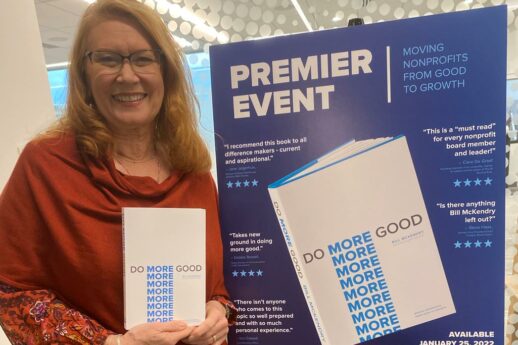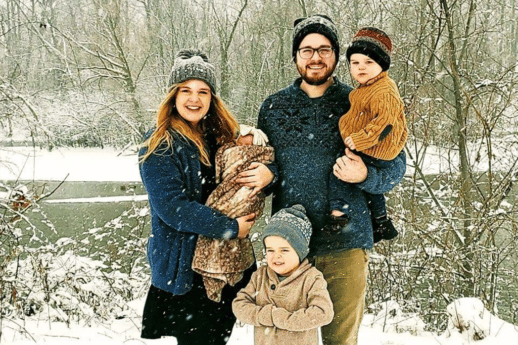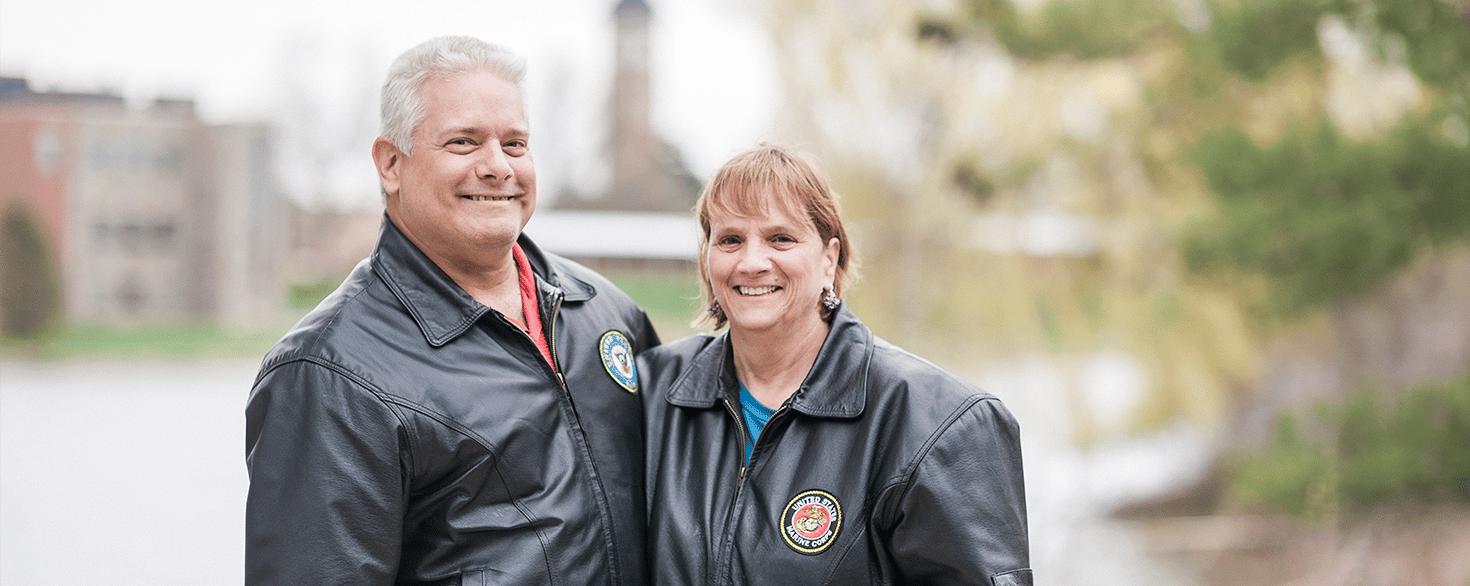
Karen Strait described the experience as walking on eggshells.
She was a young wife and mother with three young children, and her husband, RICHARD, was a combat veteran newly returned from the battlefront. Richard would have sudden outbursts he couldn’t control. He’d wake up in the middle of the night with nightmares. Karen recalls sitting in restaurants with him, watching him draw a detailed picture of the room—he was on high alert at all times. Not long afterward, Richard received a diagnosis of combat post-traumatic stress disorder (PTSD). Karen herself suffered from secondary PTSD.
After the diagnosis, the Straits didn’t know what to do. They didn’t have money for therapy because Richard was in and out of the hospital due to injuries sustained in combat. Most veterans affairs offices didn’t provide care for Karen as a spouse. And the Straits couldn’t find a church that had resources to care for veterans.
The story of the Straits isn’t unique to military couples. In a study conducted by Hill and Ponton in 2017, 13% of veterans surveyed struggled with PTSD. The Pew Research Center has found that almost 22% of military wives qualify for a PTSD diagnosis. Even more alarming—50% of marriages between a combat veteran with PTSD and their spouse ends in divorce. Karen and Richard want to change those statistics in whatever way they can. They never want another family to endure the same pain they experienced.
In 2010, Richard and Karen founded Strait Ministries, which provides support and spiritual help for veterans and their families who struggle with the results of war. They understand that the trauma and effects of war don’t go away when a soldier comes home. Richard said PTSD can present itself in different ways for different veterans. “It’s important for me to teach veterans about what triggers their anger and PTSD,” Richard said. “We coach their families to recognize the signs and help them coach veterans into care. A lot of what we’re saying is not going to be helpful until he or she decides they need help and admits they have a problem.”
When Karen talks to wives of veterans with PTSD, she often hears voices of broken women who are at their wits’ end just like she was. Unfortunately, these women often don’t get the help they need.
“There have been days when I’ve told women things they really don’t want to hear,” Karen said. “Sugarcoating it does not help.”
While PTSD research has improved over the past century, there is still so much about it that is unknown. Thankfully, the Straits follow and worship a known God.
Through their ministry, the Straits travel across the country to churches, veterans centers and conferences to educate veterans and their communities about the effects of PTSD and how families can get help. Richard and Karen typically stay for three to six months at one location to work with churches, pool their resources and launch branches of their ministry around the country. When they’re on the road, they answer text messages, phone calls and emails at all hours. They don’t want families to feel alone as they did.
Infused into their ministry is the hope that they have in Jesus Christ and in His healing power. While it’s important to note that Strait Ministries does not provide clinical mental health counseling, they do seek to partner with such services so as to provide holistic care for each individual. That includes sharing the gospel. That is why, after over 30 years of struggling with PTSD and its effects, the Straits still have hope.
“The LORD prepared us through the hardship we went through,” Richard said. “When we first started, we asked Him, ‘What do you want us to do?’ He wanted us to share the love of Jesus Christ.”
At each stop, the Straits provide resources they’ve curated, including small group studies, seminars and workshops. They provide training for fellow ministry practitioners and churches, helping churches around the country develop their own outreach programs for veterans. Recently, they were able to help support the efforts of the Sacred Mountain Retreat Center in Deadwood, S.D., after building a connection with its founder. The retreat center provides a peaceful place for veterans to heal and bond with fellow brothers and sisters in arms.
“We try to meet people’s physical needs first,” Richard said. This helps establish trust and rapport so veterans and their families are more willing to ask for and accept help. “Proper diet, exercise and sleep—if you’re a combat vet and you’re getting four or five hours of sleep, even if it’s broken, you’re doing good!”
Such retreat centers and ministries are popping up across the country as a result of Strait Ministries. Richard and Karen have traveled from coast to coast since they began their venture, and they have even received calls from overseas. Karen said that women from Australia and Germany join her for online women’s meetings.
Richard and Karen have no intention of slowing down. This spring, they took a brief break to return home to Michigan, but they pray that the LORD continues to use them to grow veterans ministries around the country and around the world.
“The fact is that we’ve been married for 32 years, and of that 32 years, 31 of it has been dealing with PTSD,” Karen said. “But we are getting better control of it. There is light at the end of the tunnel.”





